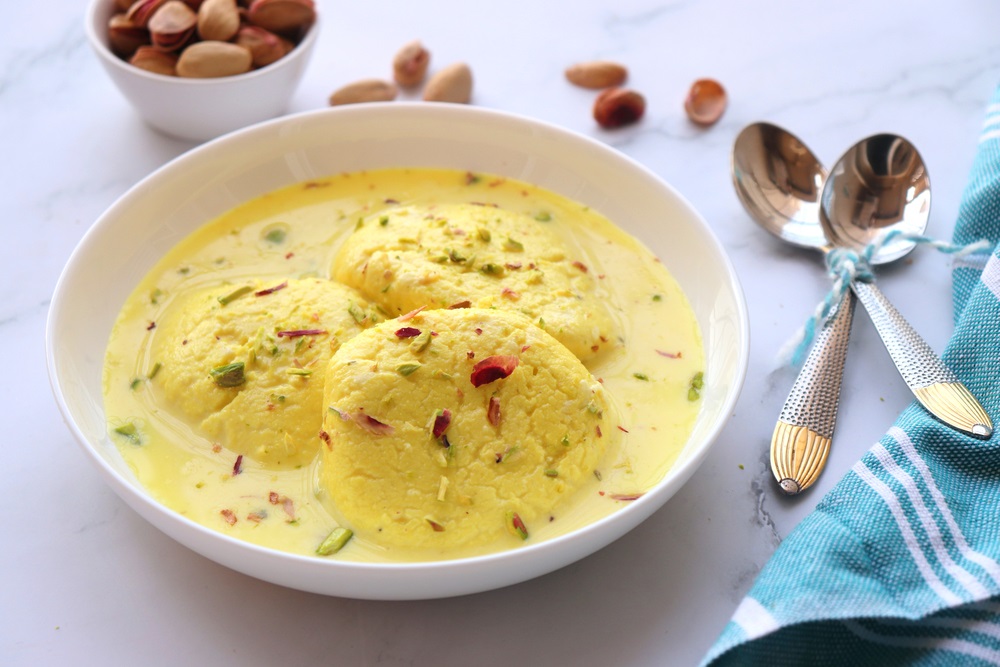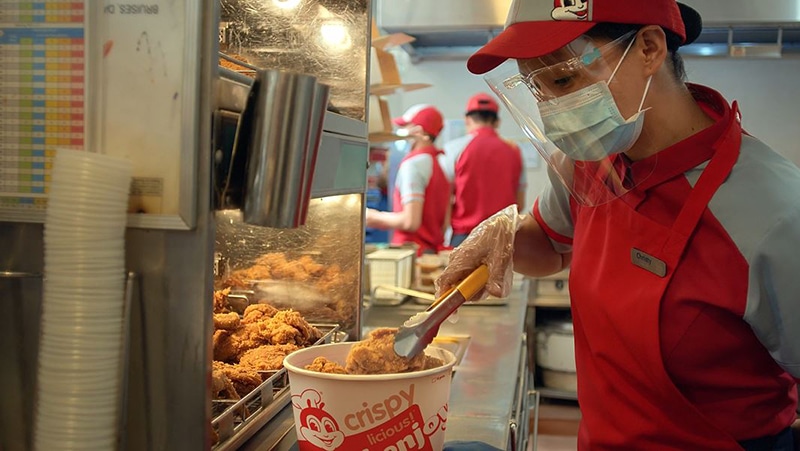Introduction
People of all ages in Pakistan adore the dessert known as rasmalai. It is a well-liked dessert for special occasions and ordinary indulgences because of its sweet, creamy, and spongy texture. When it comes to Rasmalai and Health, many individuals ponder whether they may indulge in rasmalai without feeling bad about how it affects their health. The nutritional content of rasmalai, its potential health hazards, and methods for enjoying this dessert in moderation will all be covered in this article.
What is Rasmalai?
In order to make the milk-based dessert rasmalai, paneer (cottage cheese) balls are soaked in sweetened, thickened milk. To enhance the dessert’s flavor and depth, the milk is typically spiced with cardamom, saffron, and other ingredients. Rasmalai is served cold and often has chopped almonds and rose petals on top. Desserts like this are usually savored on big occasions like weddings, Eid, and other events.
Nutritional Value of Rasmalai
Rasmalai is a delicious dessert, but it’s crucial to understand its nutritional makeup. Rasmalai has a lot of calories and fat, which can cause you to gain weight and other health issues. It typically has about 230 calories, 10 grams of fat, and 27 grams of sugar per serving (two pieces). The paneer foundation of rasmalai, however, makes it important to note that it is also a healthy source of calcium and protein.
Health Risks of Rasmalai
Overeating rasmalai on a regular basis can lead to health problems like obesity, diabetes, and heart disease. This is true since rasmalai has a high sugar and saturated fat content, both of which are known to increase the risk of major health issues. Also, a lot of the rasmalai items you can buy in supermarkets have chemical preservatives and ingredients that could be hazardous to your health.
Moderation is Key
Rasmalai can still be consumed in moderation, which is excellent news. Limiting consumption, such as just eating rasmalai on special occasions, is one method to achieve this. Another method to manage portion sizes is to limit yourself to one slice of rasmalai rather than two. Making your own rasmalai at home with fresh ingredients and natural sweeteners is another option.
Rasmalai and Diabetes
It can be a difficult dessert to eat if you have diabetes. It’s critical to remember that rasmalai contains a lot of sugar, which might cause blood sugar to surge. Rasmalai can be enjoyed in moderation, though, by consuming small amounts and combining it with foods high in protein and fiber to help control blood sugar levels.
Rasmalai and Weight Loss
It is a high-calorie food that might be a hindrance to weight loss efforts. By eating small portions and including rasmalai in a balanced diet, it is still feasible to enjoy rasmalai in moderation. In order to account for the calories and sugar in rasmalai, you might need to make changes to the remainder of your daily meals.
Healthier Alternatives to Rasmalai
There are healthier alternatives to rasmalai if you want a dessert that has fewer calories and sugar but still satisfies your sweet craving. For instance, you might try making rasmalai with skim or low-fat milk instead of whole milk, or you could sweeten it with honey or dates, two natural sweeteners. There are more classic Pakistani desserts that have less sugar and calories.
Fruit chaat is one such choice; it’s a combination of seasonal fresh fruits including mangoes, apples, bananas, and pomegranates that are seasoned with chaat masala and lemon juice. Fruit chaat offers important vitamins, minerals, and fiber in addition to being a nutritious option for dessert.
Phirni, a rice pudding made with ground rice, milk, and sugar, is an additional choice. Phirni is a lighter dessert than other traditional Pakistani desserts since it is made with skim milk and has less sugar. Protein and calcium are also abundant in them.
Another well-liked dessert in Pakistan that is healthier than rasmalai is the fruit lassi. It is a good source of protein and probiotics, both of which are necessary for gut health and are produced using yogurt, fruit, and natural sweeteners.
Conclusion
Rasmalai is a tasty and well-known dessert from Pakistan that is best consumed in moderation. Even though it might not be the healthiest dessert, it has some nutritional advantages. Rasmalai has calories, sugar, and fat. Therefore it’s necessary to eat it in moderation and to be aware of these things.
When it comes to Rasmalai and Health, there are a number of healthier dessert options available besides rasmalai. That is lower in calories and sugar and still offers necessary nutrients. In the end, eat in moderation and include a range of nutrient-dense foods in your diet. These are the keys to maintaining a balanced diet.





